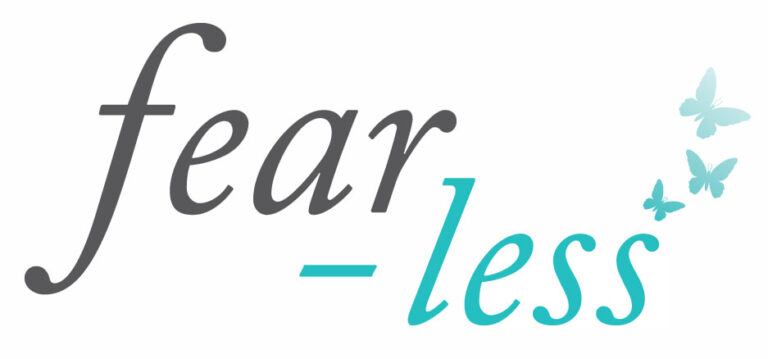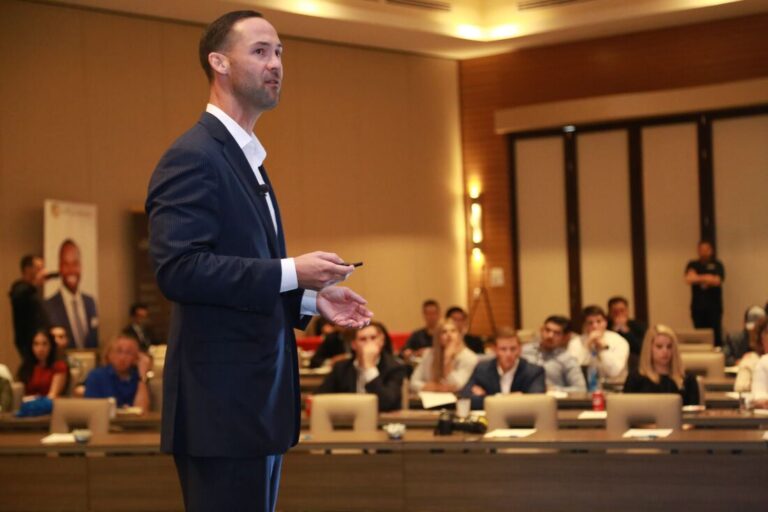Public Speaking Anxiety at Work
Let’s Talk About the Fear No One Talks About

Let’s be honest—public speaking freaks a lot of us out. But here’s the thing… no one really talks about it.Over the years, I’ve asked large audiences, “Raise your hand if you’ve never been nervous about public speaking.” At most, a few hands go up. The...

How To Become a Public Speaking-Friendly Organisation

I was running a public speaking workshop for a company a few years ago, and the national manager attended. He commented on the value of public speaking. He said that hearing people speak – whether it is giving presentations or speaking up at meetings –...

Can You Talk to Your Manager About Your Fear of Public Speaking?

Less than 20% of participants in Fear-less public speaking courses have their course fees paid by their employer. Sure, some participants are self-employed, want to improve their speaking skills for non-work-related reasons, or are looking for a new job. But others may be missing opportunities...

Had a Speech That Bombed? How to Figure Out What Went Wrong and Fix It.

Everyone has experienced failure at work, but the public humiliation of a bombed presentation is particularly hard to handle. And it can stay with you for a long time. Unfortunately, a common reaction is for people to try to avoid public speaking after a failure...

The Fear-less Public Speaking Blog Turns 5! : A comprehensive guide to what is in it and what you may have missed.

I started the Fear-less blog 5 years old and have written more than 50 articles. I aim to write one a month – sometimes I wonder whether I will run out of ideas for new articles – but it hasn’t happened yet!I get about 10,000...

Fear of Public Speaking? Your Job Could Be the Problem.

I encourage people to talk about something they know and care about when they do the first speech for one of my courses. It requires little preparation, but more importantly, it eliminates one possible source of anxiety for people – having to talk about something...

If You Are Avoiding Public Speaking You Are Not Alone – But You Are Not Doing Yourself Any Favours.

I run courses for people with public speaking anxiety. In the pre-course questionnaire, 80% of participants say that they avoid public speaking if they possibly can. They turn down opportunities, get ‘sick’ on the day, ask others to step in for them, and even turn...

Do You Have Employees Hiding a Fear of Public Speaking?

This email arrived in my inbox today, “Hi, I am terrified about public speaking and the panic attacks that come with it! I go to great lengths to avoid these situations, and it’s having an impact on my life. Is this the sort of course...

Why Avoiding Public Speaking Is Worse Than Doing It! It Is Career-Limiting, Stressful, and Harder Than You Think.

Verbal communication skills are valued by employers. They consistently rank highly on lists of the top “soft skills”. For example, the LinkedIn Learning 2020 Workplace report found that employers ranked “persuasion” as their number two soft skill requirement. And you can’t persuade without good verbal communication skills.Public speaking is...

Is a Fear of Public Speaking Affecting Your Career? Why You Need to Act and What You Can Do.

A few months ago, I had a phone call from a young woman who needed help. Anna (not her real name) was a marketing graduate who had landed a great first job in the grocery sector. But she was suffering from anxiety because she was...

Why the Imposter Syndrome May Explain Your Fear of Public Speaking- And What You Can Do About It

If you have ever stepped up to speak and thought, “Who am I to be talking about this?”, you are in very good company. In fact, those moments of doubt often show up most strongly in people who are highly capable, hard-working, and quietly ambitious....

How to Speak Clearly When You Are Put on the Spot – Impromptu Speaking Without Panic!

You might be articulate when you have time to prepare. You can structure a presentation, practise it, and deliver it well. But when you are asked to speak off the cuff, something different happens. Your mind goes blank. You ramble. Or you say far less...

Why Verbal Communication Skills Matter More Than Ever for Graduates

This article was originally published in 2018 and updated in 2025 to reflect current research and the impact of AI on graduate employability. Graduates are entering a workplace that looks very different from the one their parents stepped into. Technical skills are changing faster than...


